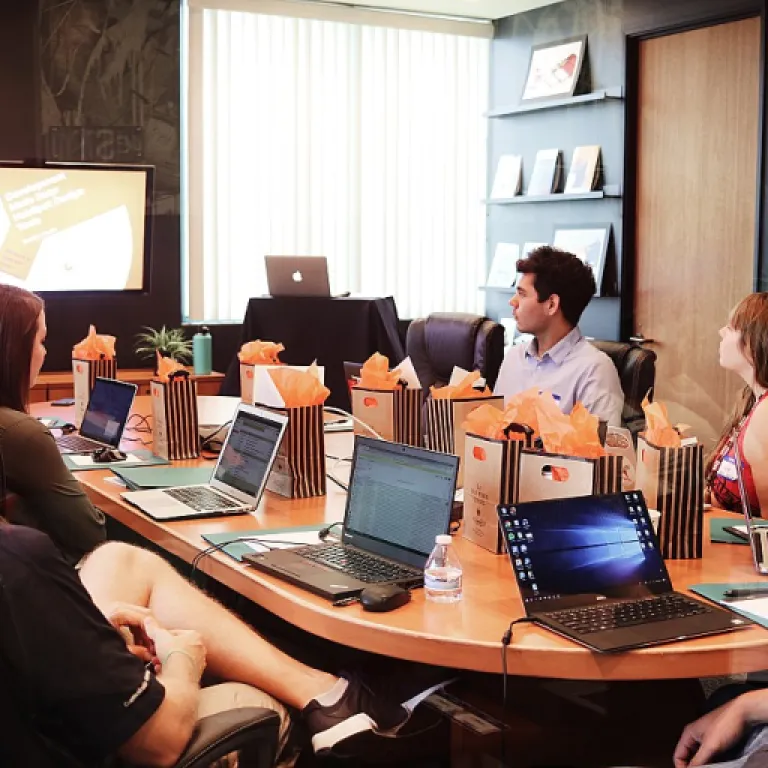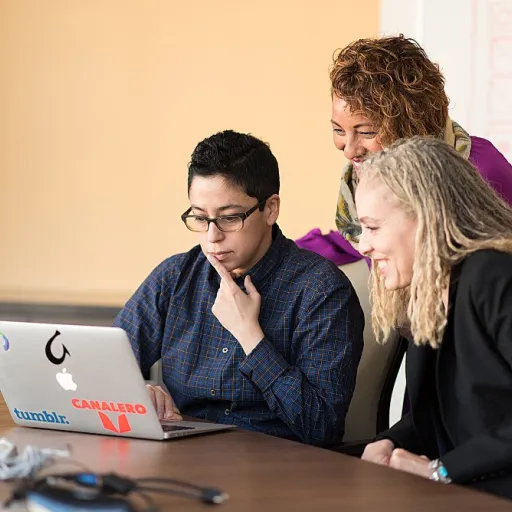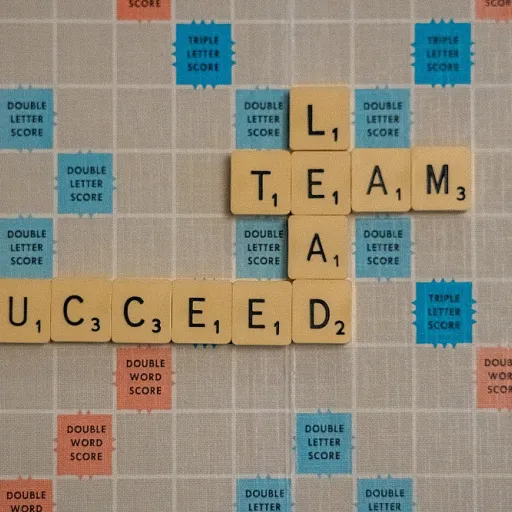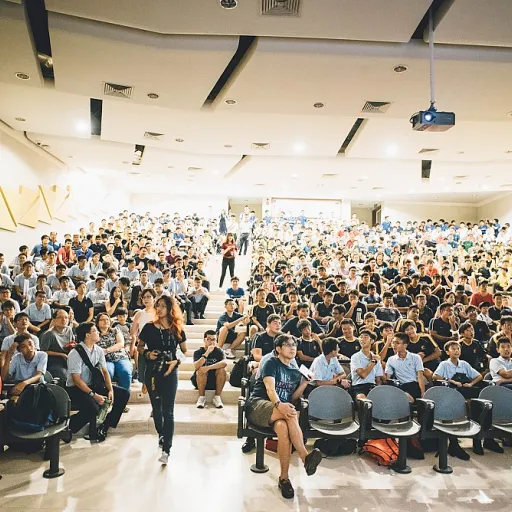
Defining digital interviews in recruitment
What Makes Digital Interviews Different?
Digital interviews have become a central part of the modern hiring process. Unlike traditional face-to-face interviews, these are conducted using video technology, allowing candidates and hiring managers to connect remotely. There are two main types: live interviews, where the conversation happens in real time, and pre recorded interviews, where candidates record their answers to interview questions at their convenience. This flexibility is changing what candidates expect from the interview process and how companies approach hiring top talent.
How Digital Interviews Work in Practice
During a digital interview, candidates might be asked to respond to a set of pre defined questions. In a video interview, the hiring team can review recorded interviews at a time that suits them, making it easier to compare answers and assess fit. Live pre scheduled interviews, on the other hand, allow for real time interaction, giving both sides a chance to ask follow up questions and build rapport. The process is designed to be efficient for both candidates and hiring managers, helping companies streamline their hiring process and reach more applicants.
Why Digital Interviews Matter in Recruitment Process Outsourcing
Recruitment process outsourcing (RPO) providers often use digital interviews to help companies scale their hiring efforts. By leveraging technology, RPO teams can handle large volumes of candidates, ensure consistency in interview questions, and provide hiring managers with structured feedback. This approach supports the goal of finding top talent quickly and fairly. For more insights into how digital interviews fit into the broader RPO landscape, you can explore the role of a sourcing recruiter in recruitment process outsourcing.
What Candidates Should Expect
If you are a candidate, digital interviews might feel different at first. You may need to record your answers to interview questions without seeing the hiring manager face to face. It is important to prepare as you would for any interview, making sure you understand the process and have the right technology set up. Being comfortable with video interviews will help you present yourself confidently and make a strong impression on the hiring team.
How digital interviews fit into recruitment process outsourcing
Integrating digital interviews into outsourced recruitment
Recruitment process outsourcing (RPO) providers are increasingly using digital interviews as a core part of the hiring process. When a company partners with an RPO, the hiring team gains access to advanced technology and streamlined workflows. Digital interviews, including both pre recorded and live video formats, are now standard tools that help RPOs deliver efficient and scalable solutions for clients seeking top talent.
In a typical outsourced recruitment process, digital interviews are used at several stages:
- Pre screening: Candidates answer pre recorded interview questions, allowing hiring managers to review responses at their convenience. This saves time and ensures a consistent evaluation process.
- Live interviews: For shortlisted candidates, live video interviews connect candidates and hiring managers in real time, even if they are in different locations. This flexibility is especially valuable for companies with distributed teams or remote hiring needs.
- Assessment and collaboration: Digital interviews make it easier for the hiring team to share candidate answers and feedback. Recorded interviews can be reviewed by multiple stakeholders, ensuring a fair and thorough process.
RPO providers leverage digital interviews to handle high volumes of applications, maintain quality, and reduce bias. By standardizing interview questions and using structured scoring, they help companies identify the best candidates efficiently. This approach also gives candidates a clear idea of what to expect during the interview process, making the experience more transparent and engaging.
For more insights on how sourcing recruiters contribute to the success of recruitment process outsourcing, you can read about the role of a sourcing recruiter in recruitment process outsourcing.
Benefits of digital interviews for companies and candidates
Why digital interviews are a win-win for companies and candidates
Digital interviews have become a cornerstone in the hiring process, offering clear advantages for both companies and candidates. By integrating video interviews—whether live or pre recorded—into recruitment, organizations can streamline their interview process and reach top talent more efficiently.
- Time and cost savings: Companies can screen more candidates in less time, reducing the need for travel and coordination. This efficiency means hiring managers and the hiring team can focus on the most promising applicants, accelerating the path to a final decision.
- Access to a broader talent pool: Digital interviews remove geographical barriers. Candidates from different locations can participate in the process, helping companies tap into top talent that might otherwise be out of reach.
- Consistency and fairness: Pre recorded interviews allow every candidate to answer the same set of interview questions. This standardization helps ensure a fairer evaluation and reduces unconscious bias, as hiring managers can review answers objectively.
- Flexibility for candidates: Candidates can complete pre recorded interviews at a time that suits them, reducing stress and allowing them to present their best selves. For live interviews, the digital format still offers more scheduling options compared to traditional face to face meetings.
- Better collaboration for hiring teams: Recorded interviews can be shared with multiple stakeholders, making it easier for the hiring team to review and discuss candidate responses. This collaborative approach supports more informed hiring decisions.
For candidates, knowing what to expect from a digital interview helps them prepare and feel more confident. They can anticipate the types of questions, whether the interview will be live or pre recorded, and how their answers will be assessed. For companies, digital interviews provide a scalable, data-driven way to identify top talent and improve the overall hiring process.
As digital interviews become more embedded in recruitment process outsourcing, they also support compliance and documentation needs. Every step of the interview process can be tracked, helping companies stay organized and audit-ready. For more insights on how digital hiring tools fit into global workforce strategies, see this resource on the role of an employer of record.
Challenges and limitations of digital interviews
Common Obstacles in Digital Interviewing
While digital interviews have become a staple in the modern hiring process, they come with their own set of challenges. Companies and candidates alike need to be aware of these limitations to make the most of the technology.
- Technical Issues: Video interviews depend on stable internet connections and reliable devices. Any disruption can affect the candidate’s performance or the hiring team’s ability to assess answers fairly. Pre recorded interviews can also suffer from poor audio or video quality, making it hard for hiring managers to evaluate responses.
- Lack of Personal Connection: Unlike face to face interviews, digital interviews—especially pre recorded ones—can feel impersonal. Candidates may struggle to build rapport with the hiring manager or team, which can impact their confidence and the overall impression they leave.
- Bias and Fairness: The absence of real time interaction in recorded interviews may lead to unconscious bias. Without the ability to ask follow up questions or clarify answers, hiring managers might misinterpret candidate responses.
- Candidate Experience: Not all candidates are familiar with digital interview platforms. Some may feel uncomfortable or unsure about what to expect, which can affect their performance and potentially exclude top talent who are less tech savvy.
- Standardization vs. Flexibility: While digital interviews help standardize the interview process, they can limit the ability to tailor questions or dive deeper into a candidate’s unique background during a live interview.
Addressing the Limitations
To overcome these challenges, companies should provide clear instructions and support for candidates before the interview. Ensuring the hiring team is trained to interpret digital interview responses and to use best practices will help create a fairer, more effective process. It’s also important to combine digital interviews with other assessment methods to get a holistic view of each candidate.
Best practices for successful digital interviews
Preparing for a Seamless Digital Interview Experience
For both hiring managers and candidates, preparation is essential to make the most of digital interviews. Whether it’s a live interview or a pre recorded session, knowing what to expect and how to present yourself can make a significant difference. Companies should ensure that their hiring team is familiar with the chosen video interview platform, test equipment in advance, and provide clear instructions to candidates. Candidates, on the other hand, should check their internet connection, choose a quiet and well-lit space, and practice answering common interview questions on camera.
Crafting Effective Interview Questions
Digital interviews, especially pre recorded interviews, require carefully designed questions. Since candidates may not have the chance to ask for clarification in real time, questions should be concise and unambiguous. Hiring managers should focus on questions that reveal both technical skills and cultural fit. For live pre recorded interviews, it’s helpful to provide examples or context to guide candidates in their answers. This approach will help ensure that the interview process is fair and that top talent is not overlooked due to unclear instructions.
Ensuring Consistency and Fairness
One of the main advantages of digital interviews is the ability to standardize the process. To maximize this benefit, companies should use the same set of interview questions for all candidates applying for the same role. This consistency helps reduce bias and makes it easier for the hiring team to compare answers objectively. Recorded interviews also allow multiple hiring managers to review candidate responses, which supports a more collaborative and thorough evaluation.
Communicating Expectations and Providing Feedback
Clear communication is key throughout the digital hiring process. Candidates should be informed about what digital interview format will be used, what to expect during the process, and the timeline for feedback. After the interview, timely and constructive feedback helps candidates improve and leaves a positive impression of the company. For hiring teams, debriefing after video interviews ensures everyone is aligned before making decisions.
Protecting Data and Privacy
With digital interviews, companies must be diligent about data security and privacy. Make sure that the video interview platform complies with relevant regulations and that candidate data is stored securely. Inform candidates about how their recorded interviews will be used and who will have access to their answers. This transparency builds trust and demonstrates professionalism throughout the hiring process.













